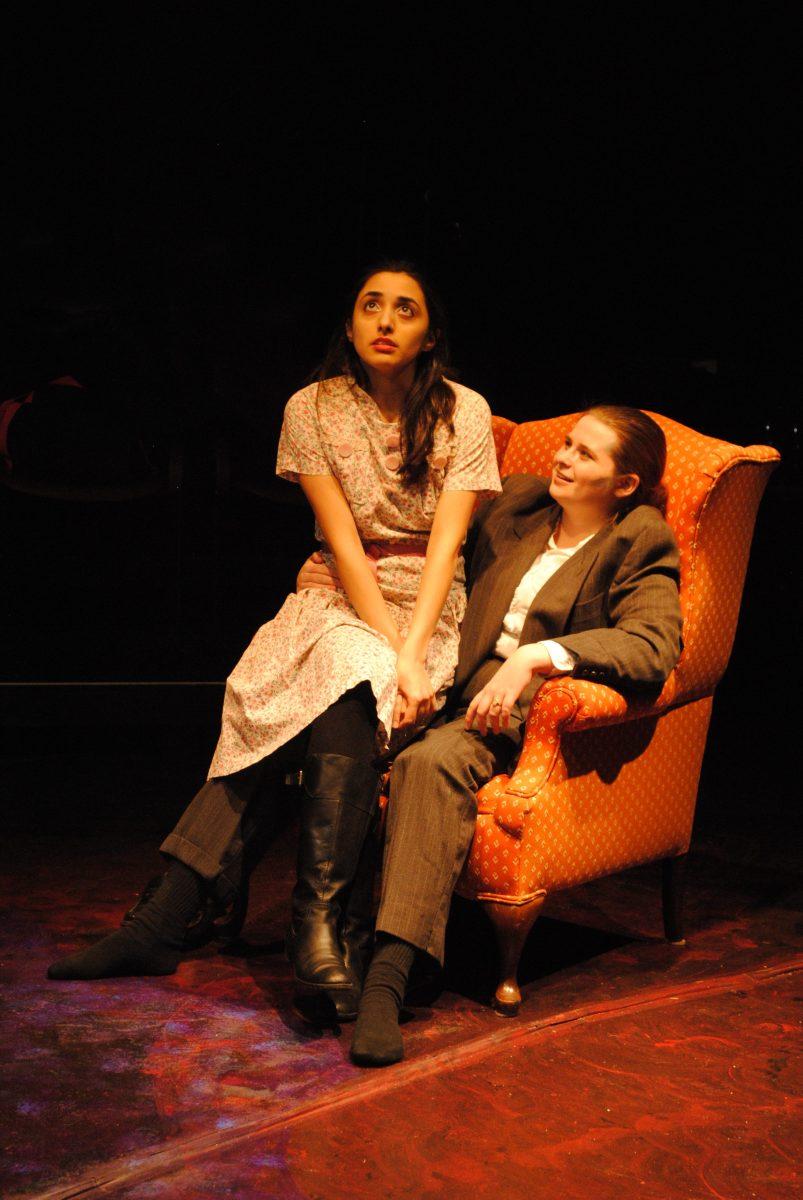Wellesley Upstage’s production of Machinal managed to bring genuine emotion despite having some issues with pacing.
The play, loosely based on housewife Ruth Snyder who was executed for the murder of her husband in 1928, revolves around a young woman named Helen (Marcela Olivas ’17) who finds herself in a loveless marriage and murders her husband, accomplished businessman George H. Jones (Addie Pates ’19).
Olivas’ Helen is convincingly neurotic and restless, always either teetering on the edge of a mental breakdown or having a panic attack. This restlessness is almost constant, from the moment she first arrives onstage to her last few phrases on the electric chair. It gets tiring, and part of me wishes we could have seen her anxiety wax or wane over time as her life changes.
It seems to change all too quickly at that. We see an important interaction with her mother (Laura Zawarski ‘18, wonderfully overbearing) debating whether she should get married reduced to a long, drawn-out squabble that basically goes nowhere, the play’s weakest scene for me despite the passion both actors brought to it. We see her in the hospital after giving birth to a child, but the child is barely mentioned again. The pacing just feels off for the first half of the play, and I had difficulty getting into it at first.
Helen does calm down slightly when she meets a young man oozing with charm (Gauri Gadkari ’18) in a speakeasy and begins an affair with him. Her less anxious banter with him, especially compared to her sometimes over-the-top panic throughout the rest of the show, results in some of the play’s best moments. While she remains somewhat anxious, her speech finally slows down and loses some of its frantic edge for a scene or two, and the romantic chemistry feels genuine. Then she returns to her husband, and the brief respite from her restlessness makes it all the more powerful when she immediately reverts back to her old self – with him, at her murder trial, and at her execution.
The theatre-in-the-round set, designed by Empress Helwig ‘19, was simple but effective, with a raised platform in the center of the stage serving as a bed, a bar, a kitchen, and a witness stand, with the help of minimal props like chairs, tables and quilts. A detail that really stuck out was the difference between the two scenes where the platform was made into a bed: for the first, on Helen and George’s wedding night, an actor carefully arranges the quilt so it lies neatly on the platform, while for the second, a scene between Helen and her lover, the quilt is thrown haphazardly on the bed. It’s a juxtaposition that works.
The most elaborate set was saved for the final scene, where Helen is boxed in on the platform with barbed wire and sits in a Tim Burton-esque silver and black electric chair, and the play ends with a bright white light from above the stage illuminating a small square. It feels as literally claustrophobic as scenes between Helen and Jones felt figuratively claustrophobic, and it’s chilling to hear Helen’s emotional cries of “I will not submit” and of her desire to be free. While it may have suffered from pacing issues, Upstage’s production of “Machinal” was well worth seeing.





